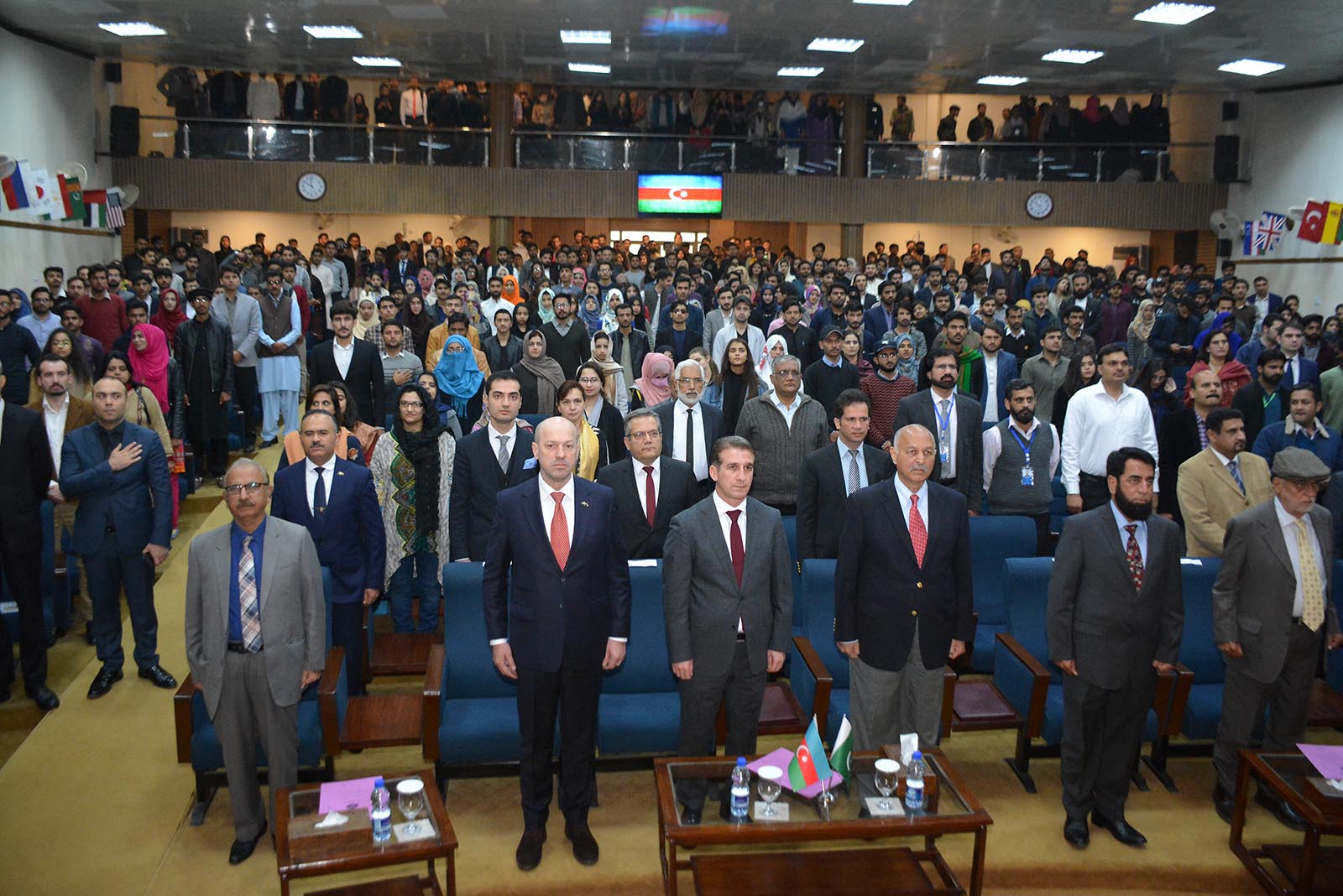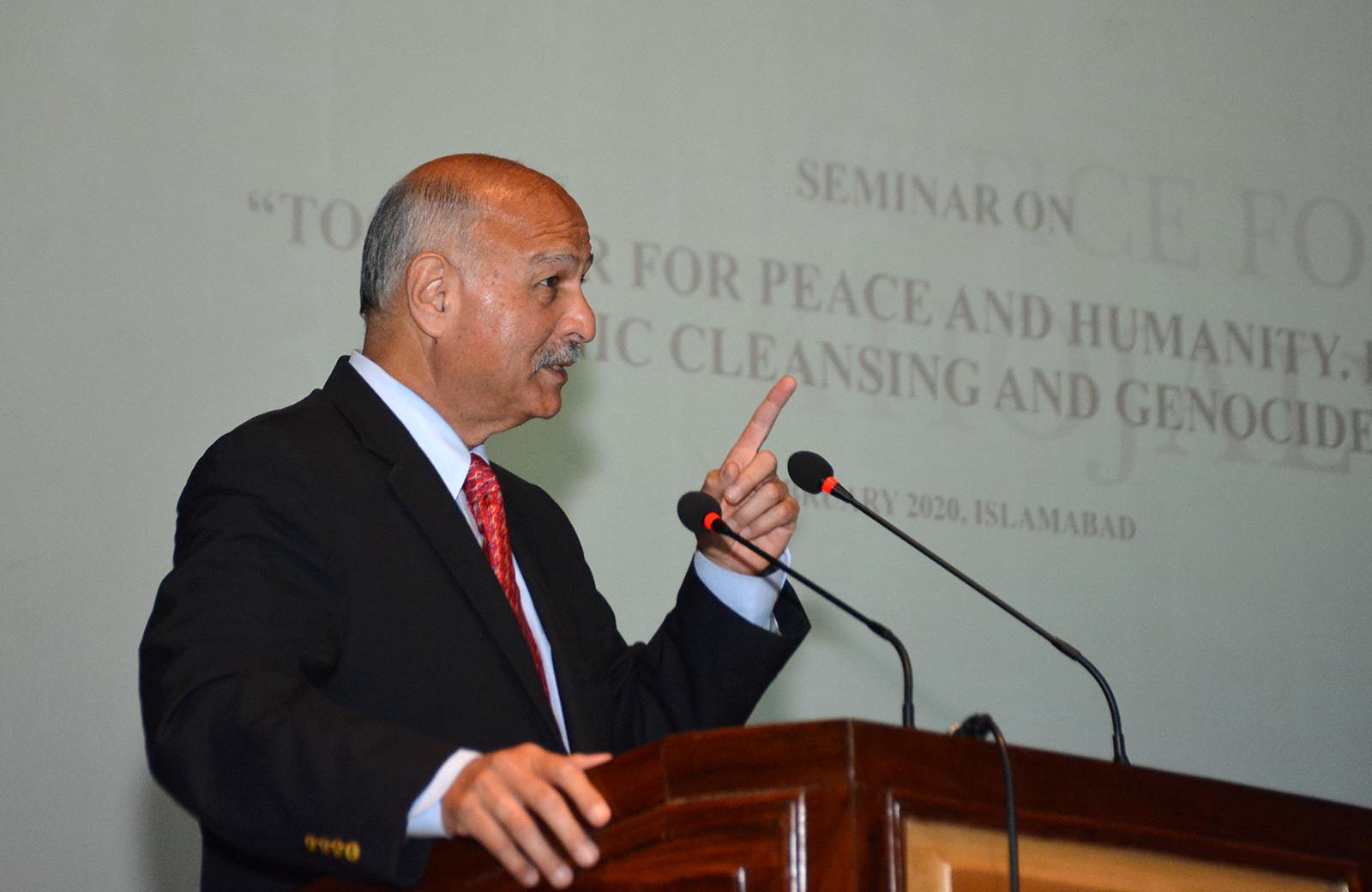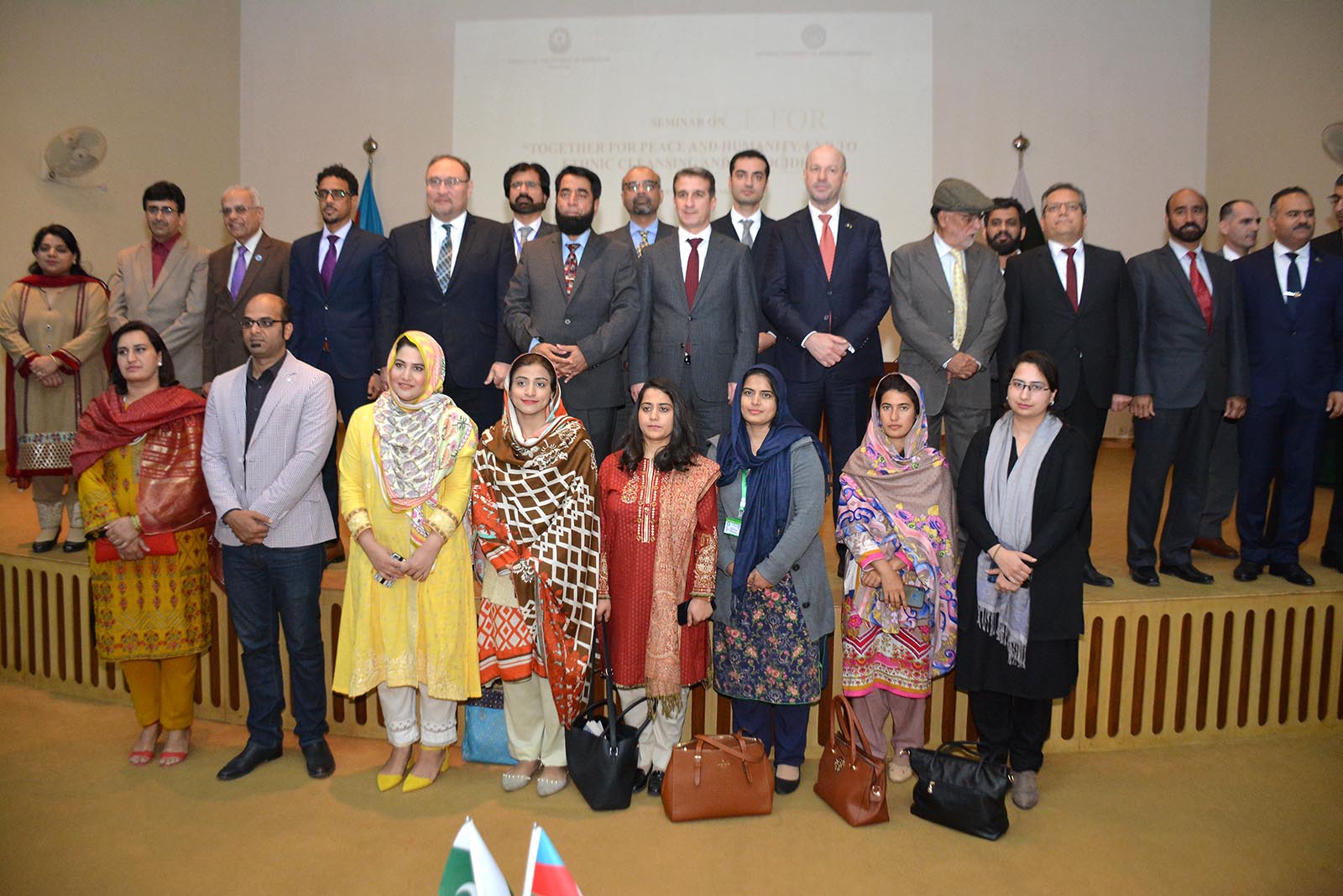Ambassador Alizade says double standards on Nagorno-Karabakh and Kashmir must be shelved; thanks Pakistan for whole-hearted support
BY ANSAR MAHMOOD BHATTI
ISLAMABAD, FEB 24 (DNA) -The Khojaly genocide is one of the most serious crimes in history not only against the people of Azerbaijan but humanity as a whole said Senator Mushahid Hussain Sayed Chairman Senate Defence Committee, on Monday.
He expressed these views at a Seminar on “Together for Peace and Humanity. End to Ethnic Cleansing and Genocide” dedicated to 28th anniversary of Khojaly Genocide” organised by NUML in collaboration with the Embassy of Azerbaijan on Monday.
Other dignitaries of the seminar included Sakib Foric Ambassador of Bosnia and former President of Azad Kashmir Sardar Anwar.
The Director General National Institute of Modern Languages (NUML) welcomed the guests.
Senator Mushahid said Pakistan and Azerbaijan have always been on the same page. He stated that Pakistan faces a similar situation in Kashmir, so Pakistan is well aware of what the people of Azerbaijan sense and is very grateful to the people of Azerbaijan for their support on the Kashmir issue.
The Khojaly genocide is most definitely one of the worst massacres the world has seen- the gravity and enormity of the situation is overwhelming and cannot be justified and the way the people of Azerbaijan have come out of this bilateral issue is highly commendable.
Senator Mushahid Hussain Sayed stated that Pakistan has given unreserved support to Azerbaijan. He highlighted the commonality between the situations in Kashmir and Nagorno-Karabakh.
Pakistan and Azerbaijan have a solid history and in the future there needs to be greater coordination between both countries especially on the issues of Kashmir and Nagorno-Karabakh.
He said that Pakistan and Azerbaijan are linked by histories and intense exchange of thinkers. Pakistan has provided endless support to Azerbaijan and has consulted its efforts with Azerbaijan in highlighting this tragedy.
He also drew attention to the Human Rights report and UN resolutions which described the event in Khojaly as “the largest massacre to date in the conflict”.
He also highlighted the insensitivity of the international community, the silence of global media, and, no major actions from major powers.
The Ambassador of Azerbaijan Ali Alizada gave a brief overview of the events of the genocide – the Khojaly graveyard is a symbol of all the atrocities that took place during this incident.
He made it clear that the world should exercise same principles and rules while dealing with the issues of Nagorno-Karabakh and Kashmir. The world must stop exercising double standards, he emphasized.
He stated that history provides evidence that such events can occur in the future too, and to avoid this repetition he said that there has to be a uniform stand against this crime and the perpetrators need to be brought to justice.
The Ambassador was very appreciative of the friendship between the two countries and the solidarity between the two nations and acknowledged that Pakistan was one of the first countries which recognised this massacre as genocide.
He stated that the Khojaly massacre is a bloody episode of human history and a bloody page of the policy of ethnic cleansing and genocide pursued by the Armenian nationalists against Azerbaijani people over a hundred years.
He stated that the principle position of both countries on humanitarian issues demonstrates their fidelity to international law and upholding of human rights and international human law and serves to reinforce the deep bonds of friendship between the two nations.
The ambassador also quoted national leader of Azerbaijan Heydar Aliyev who said on many occasions that Armenians had unleashed a systematic genocide of innocent Azerbaijani people.
Ambassador Alizada called for collective efforts on the part of the international community in order to ensure peace and stability both in Nagorno-Karabakh and Kashmir. =DNA













